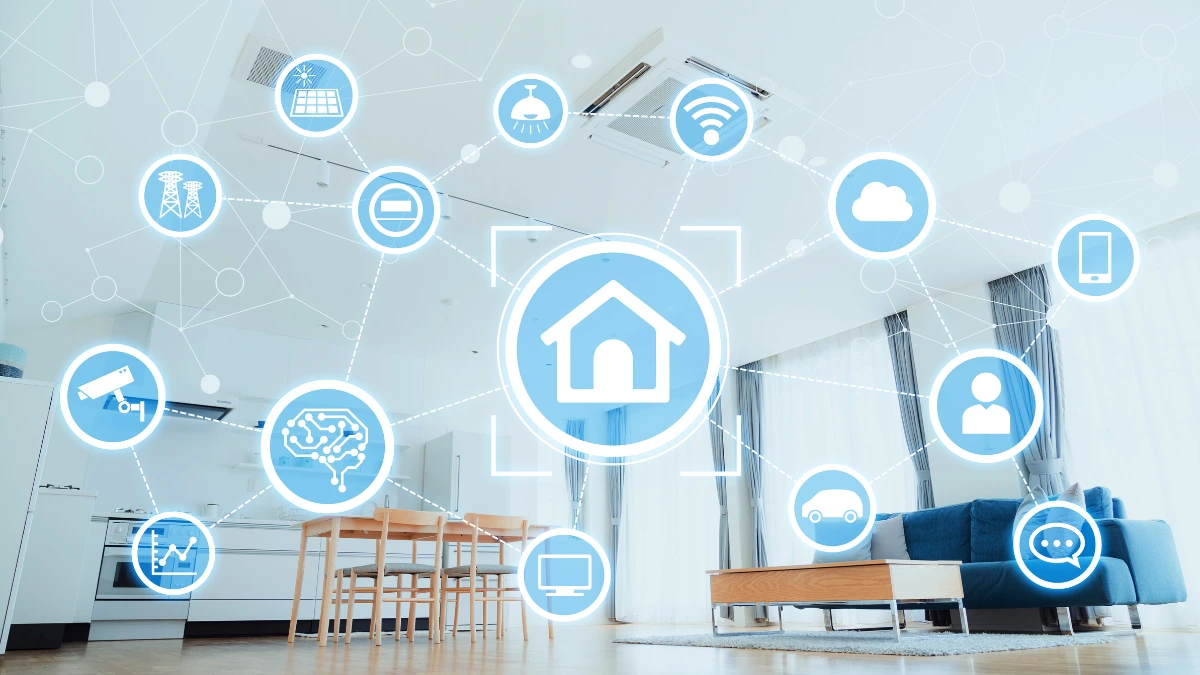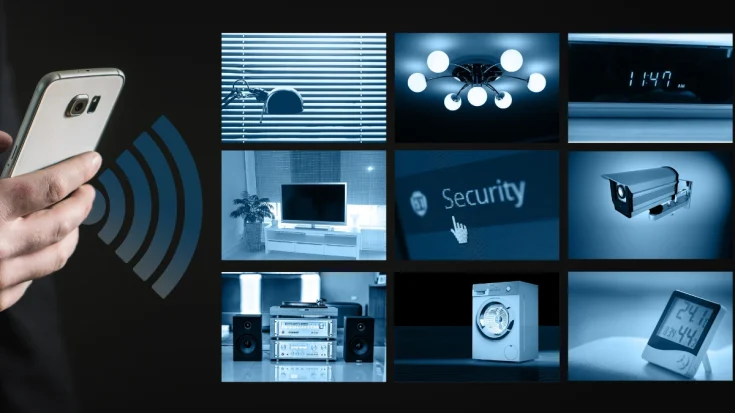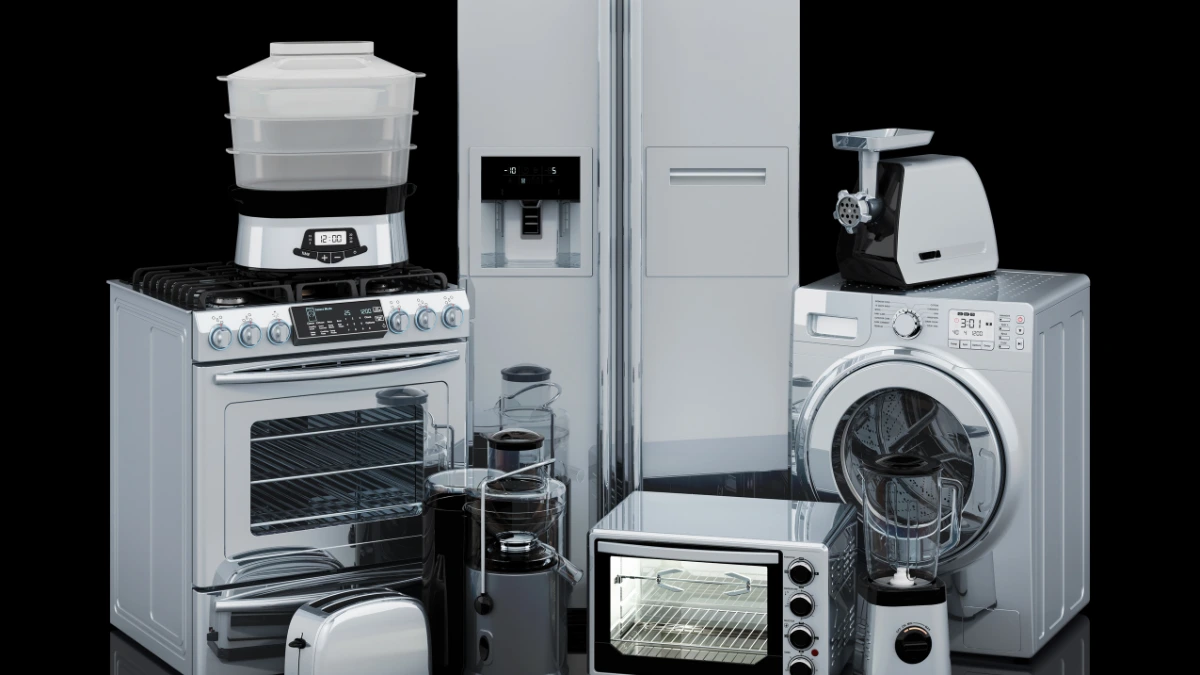Smart home appliances are the most popular and sought-after electronic devices to support smart homes and create futuristic residences.
With security devices, automatic lights, and smart bathrooms, smart home appliances designed to improve user comfort and efficiency.
Are you familiar with these smart devices? In this article, we will discuss smart home appliances from the definition, examples of devices, benefits, and the regulation of their use in Indonesia.
What are Smart Home Appliances?

Smart home appliances are household electronic devices designed to be interconnected to the internet. This capability supports remote settings and control through applications on smartphones or tablets.
Electronic devices can be said to be a smart home experience if they meet several main characteristics, namely remote control, automation systems, connected wirelessly (WiFi, Bluetooth, or Zigbee), using AI and machine learning, and integrated with the smart home ecosystem.
The smart home experience is designed to support large-scale automation systems in your smart home, so that a modern home that seems futuristic can be realized properly.
Smart Home Appliances Examples
Here are some examples of smart home appliances that can support your smart home:
- Smart security: Smart CCTV, smart door lock, and smart doorbell.
- Smart lighting: Smart lights with app control.
- Smart kitchen: Smart refrigerator, smart oven, smart coffee maker, smart induction stove, and smart dishwasher.
- Smart bathroom: Smart closet and smart toothbrush.
- Smart pet feeder: Smart pet feeder with app control.
- Smart cleaning: Robot vacuum, air purifier, and smart washing machine.
- Smart energy management: Smart plug, smart thermostat, and smart solar power system.
The Benefits

Using smart home appliances will provide many benefits, especially for supporting large-scale automation systems in your smart home. Here are some of the main benefits:
1. Comfort and convenience
Smart home appliances are designed to increase the comfort and ease of use of devices at home. Large-scale automation that is interconnected between devices, such as turning on lights, regulating room temperature, and cleaning rooms, makes everyday life easier.
For those of you who have a busy schedule, using a smart home appliance certainly provides convenience in its flexibility of use. You can easily control various devices in the palm of your hand.
2. Improving quality of life
With its various features, a smart home appliance can create a more comfortable, safe, and efficient home environment with automation and personalization according to each individual’s preferences at home.
With recommendations or suggestions based on the data collected by the device, it can certainly improve your quality of life with recommended adjustments to optimal room temperatures or customized home cleaning schedules.
3. Device control efficiency
With smart home appliance connectivity to apps on smartphones or tablets, controlling and monitoring each device becomes more efficient.
You can control various aspects of your home, such as energy usage, control room temperature, adjust lighting, and manage security systems at your fingertips, whether at home or remotely.
4. Energy efficiency
Smart home appliances allow devices to be automatically turned off when not in use, reducing excessive energy usage.
With notifications provided by the app when there is potential for excessive power usage, you can also adjust the usage to allow you to use energy more efficiently.
5. Improve security
Smart security devices such as smart CCTV, smart door locks, and smart doorbells can improve the security of your home. Even when you are not at home, you can still monitor your home conditions in real time through the app.
When there is a notification or suspicious activity at home, you can take appropriate action through the remote control.
Regulations in Indonesia

The smart home appliances uses technologies such as Bluetooth, Zigbee, or WiFi that operate within a specific frequency spectrum. In Indonesia, any Bluetooth or WiFi-based wireless device is required to have a DJID (Directorate General of Digital Infrastructure) under the Ministry of Communication and Digital (KOMDIGI).
Smart home appliances regulation is based on KEPMEN No. 260 Tahun 2024 for Bluetooth and Zigbee, and KEPMEN No. 12 Tahun 2025 for WiFi, which requires all radio frequency-based devices to meet specific technical standards before being sold in the country.
The DJID certification ensures that the product meets government safety and quality regulations and does not interfere with other communication devices. The certification process involves technical testing, such as frequency adjustments, safety checks, and compatibility with the surrounding environment.
Once the tests are completed, products that pass are listed in a Test Result Report, which confirms that the product is safe and ready for sale in Indonesia. This report reassures customers that the product meets technical standards and is secure.
For companies wanting to sell a smart home appliances in Indonesia, Type Approval Certification Services for ICT Products are available to assist with this process. This service includes preparing technical and legal documents, conducting required testing, ensuring compliance with regulations, helping companies streamline the certification process, and giving consumers confidence in certified products. [UN].

